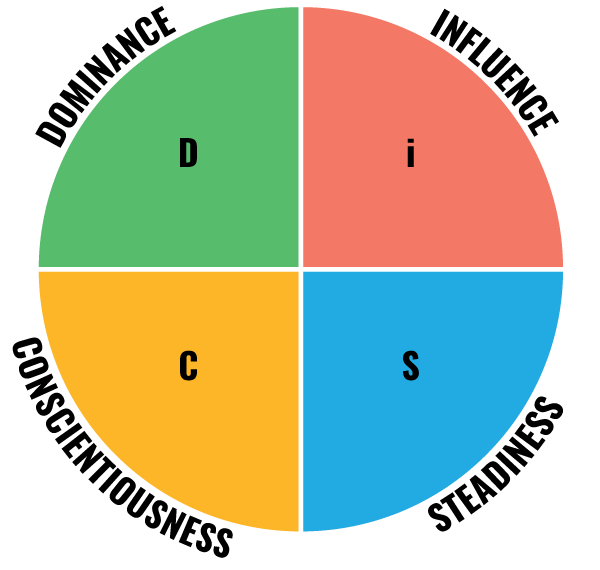
Every veterinary hospital is made of a variety of personalities. You likely have certain traits that led you to veterinary medicine but your personality can be very different from those around you. The reality is that your hospital would likely fail if you didn’t have many differing personalities working together.
Of course, personalities can butt heads if we aren’t careful. You might have one personality type that is very aggressive but another that is very passive. This could be a recipe for disaster if not managed properly.
Enter the Personality Assessment
I’m sure you’ve heard of a few personality assessments in your life. You might have heard of the Myers-Briggs Type Indicator, Color personality test, or DiSC. The ideas of personalities being related to temperaments come from Hippocrates about 460 BC.
Personality assessments can be valuable for a variety of reasons. Let’s explore some of the main benefits of using personality assessments to understand your personality:
- Self-awareness: Personality assessments can help you understand your own strengths and weaknesses. This can lead to greater self-awareness and personal growth.
- Improved communication: By understanding the personality types of others, you can learn how to communicate more effectively and reduce misunderstandings and conflicts.
- Career development: Personality assessments can help you identify careers that are well-suited to your strengths and interests. (Though, if you are reading this, you’ve probably already figured out your career.)
- Team building: In your hospital, personality assessments can be used to identify your team members’ strengths and weaknesses. You can use them to build teams that are well-balanced and work well together.
- Leadership development: Personality assessments can be used to identify your leadership style so you can further develop leadership skills that are well-suited to your personality type.
- Decision making: Knowing your personality type can support your decision making by better understanding your motivations, limitations, and biases.
The DiSC Assessment
At VCC.Academy, we are believers in the DiSC Assessment. The research of DiSC was developed by psychologist William Moulton Marston in the 1920s and the DiSC model consists of four primary personality types: Dominance, Influence, Steadiness, and Conscientiousness. The assessment is typically administered as a self-report questionnaire, and it measures an individual’s tendencies in each of the four DiSC dimensions. The results are then plotted on a graph called a “DiSC profile,” which illustrates the individual’s strengths and weaknesses in each dimension.
DiSC assessments are commonly used in the workplace for a variety of purposes, including team building, leadership development, and conflict resolution. They can also be used in personal development, coaching, and other settings.
A Team Example
A team that is dominated by individuals with high scores in the “Dominance” dimension may struggle with decision making, as everyone may want to take charge. On the other hand, a team that is made up mostly of individuals with high scores in the “Influence” dimension may struggle with following through on decisions.
By understanding the personalities of team members, team leaders can work to balance the team and ensure that everyone’s strengths are utilized to their fullest potential.
DiSC for Leadership Development
DiSC assessments can also be used in leadership development. You might be in a position of leadership in your hospital. In fact, as a DVM, you probably can’t avoid being in some level of leadership… even if it’s not your happy place. A DiSC assessment can be used to identify your leadership style allowing you to focus on leadership skills that are best-suited to your personality type.
A Leadership Example
If you find that you have a strong “Dominance” score you are likely to be well-suited to a leadership role in a high-pressure, fast-paced environment. On the other hand, if you find that your score indicates a strong “Steadiness” score, you are probably more suited to a leadership role in a more relaxed, steady environment.
When you understand your own leadership style, you will be able to work to improve your leadership skills and become a significantly more effective leader.
A Caution for Personality Assessments
While assessments, like DiSC, can be very useful in decision making by helping you understand motivations, limitations, and biases, it is important to note that it is best to be used as complementary information to other forms of assessment, such as performance evaluations, and in conjunction with other sources of feedback, like interviews and observations.
It is important to note that assessments should not be used to label or stereotype individuals. The results of the assessment should be used as a guide to understanding behavior, not as a way to make judgments about an individual’s capabilities or potential. Additionally, it is crucial to remember that individuals’ behavior can vary depending on the situation, so the DiSC profile should not be seen as a definitive or fixed characteristic.
Assessments can be a valuable tool for understanding behavior and personality traits. They can be used in a variety of settings, including the workplace, personal development, and coaching. By understanding the personalities of individuals, teams can be built that are well-balanced and work well together, leadership skills can be developed, and decision-making can be improved. However, as it is not a scientific measurement and it is important to use it as complementary information to other forms of assessment and in conjunction with other sources of feedback.

Corey Smith, MBA
President
I have come to veterinary medicine from a truly non-medical and non-veterinary path. With early roots in 4-H and, as a youth, owning 4 horses, 2 ponies, 2 dogs, 1 cat, 1 sheep, a whole slew of rabbits, and even a giraffe (that’s a story for another day), I am decidedly not a veterinarian. I'm a businessman, marketer, and talented coach. Whether I'm coaching in business, marketing, or helping leaders understand how their personality affects their interpersonal and client relationships, my goal is to help leaders be the best they can be.

